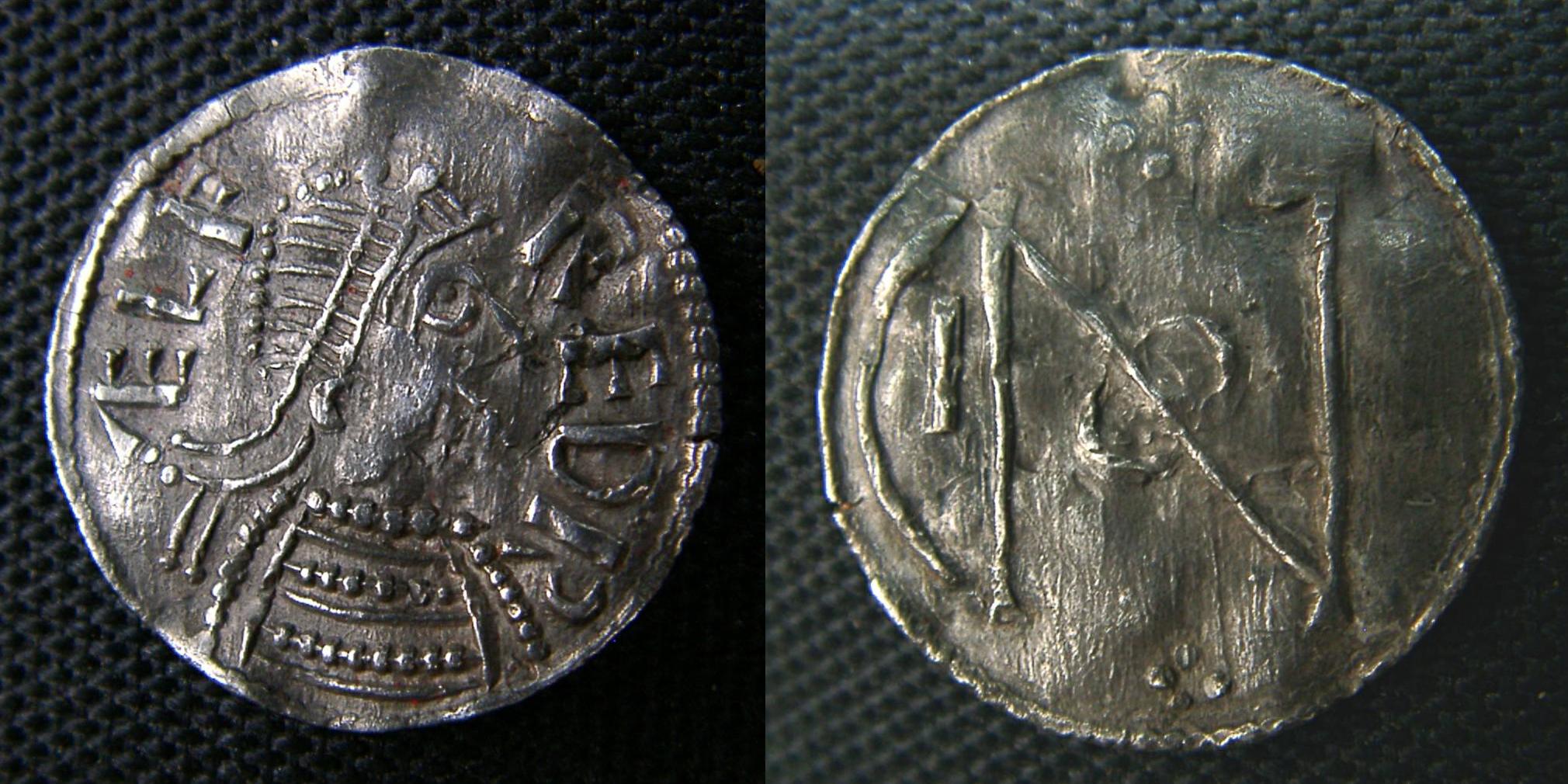
Taynton Metal Detecting Club
The Gannets
Alfred Penny

This silver penny was issued in AD 886 to celebrate Alfred's successful capture of London from the Danes. The obverse shows a bust depicting Alfred with the letters ELFREDR. On the reverse is the London monogram. This coin was found by Don Sherratt at Coberley.
Alfred the Great
Known as King Alfred (Aelfred) the Great, or King of Wessex, he became ruler of the West Saxons in after he and his brother defeated the Danes in the Battle of Ashdown in Berkshire - the later death of his brother Ethelred left Alfred as successor in 871. He has the reputation of being a great warrior as well as a social reformer who built towns and promoted education by starting schools and translating texts from Latin. He is considered by some as the first King of England.
Although the Danes were defeated at Ashdown, the West Saxons were forced to negotiate and pay tribute after losing further battles. But Alfred refused to surrender and in 878, he rallied men from Somerset and Wiltshire and again defeated the Danes in the Battle of Edington. The Danes made peace and Guthrum, their king, was baptised with Alfred as his sponsor. By 886, Alfred had freed London from Danish occupation and a treaty was made with Guthrum and the East Anglians. England was divided, with the east (between the Rivers Thames and Tees) declared to be Danish territory - later known as the 'Danelaw' - where English and Danes were treated as equals by law.
The failure of the Danes to make any more advances against Alfred was largely a result of the defensive measures he undertook during the war. He set about strengthening old forts and building new, and he ensured that his army was well organised. He also built up a navy to meet invasions. Larger ships were constructed to his own design for use against the coastal raids that continued even after 896.
Alfred understood the value of diplomacy and formed amicable relations with Mercia and Wales; Welsh rulers sought his support and even provided troops for his army in 893. As an administrator Alfred advocated justice and order. He established a code of laws, after studying the principles of law-giving in the Book of Exodus and the codes of Aethelbert of Kent, Ine of Wessex and Offa of Mercia. While avoiding unnecessary changes to custom, he limited the practice of the blood feud and imposed heavy penalties for breach of oath or pledge.